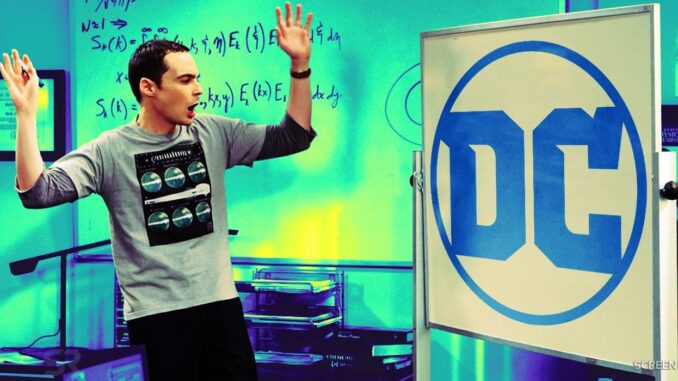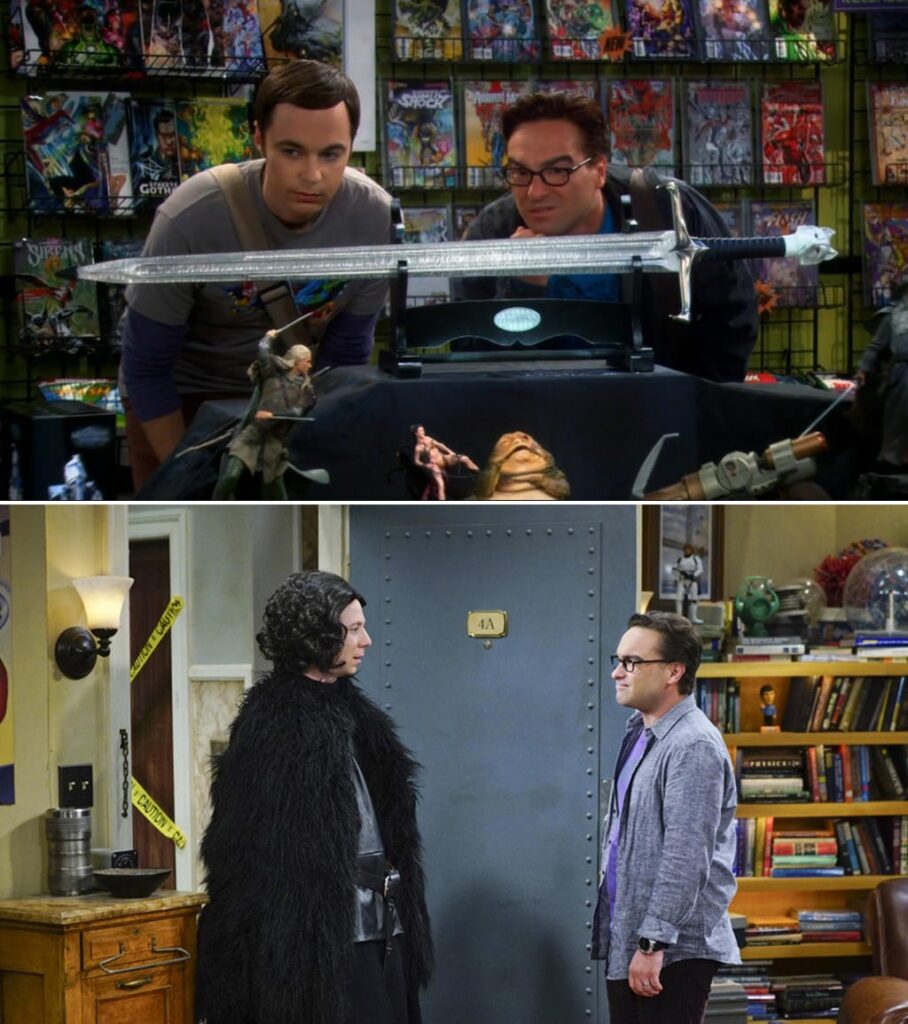
Whether or not you’re a fan, The Big Bang Theory played a huge role in making nerd culture mainstream. From nods to Star Trek, Battlestar Galactica, and The Lord of the Rings to comic book icons, the show presented a nerdy paradise while inviting wider audiences into the world of geeky references. However, fans quickly noticed that while Marvel and DC superheroes were both discussed, the show leaned heavily into DC Comics over Marvel. Although Marvel’s popularity soared alongside its cinematic universe, DC remained the show’s staple. From costumes to props to comic shop merchandise, DC Comics and Warner Bros. franchises took center stage. Here’s why.
Corporate Synergy: Warner Bros. Owned Both The Big Bang Theory and DC Comics
While The Big Bang Theory aired on CBS, it was produced by Warner Bros. Television, which falls under Warner Bros. Discovery—also the parent company of DC Entertainment. With this connection, The Big Bang Theory leaned into its in-house brands, filling the show with DC Comics references and memorabilia. The effect was a seamless blend of brand promotion and authentic nerd culture, as Warner Bros. used this synergy to showcase its properties to millions of viewers.
In the same way, Warner Bros.-owned Harry Potter and Lord of the Rings references frequently appeared. Sheldon Cooper’s iconic DC superhero shirts? Fans could find them in Warner Bros. merchandise stores, making it easy for viewers to connect with the show’s style. In fact, DC even released a Power Girl comic with Big Bang Theory character Howard Wolowitz making an appearance, cementing DC’s place in the show’s fandom.

Merchandising Boost for DC and The Big Bang Theory
The show’s promotional synergy didn’t stop with comics. Warner Bros.-partnered McFarlane Toys, a prominent producer of DC action figures, created The Big Bang Theory collectibles, like Sheldon Cooper in his Flash costume. This merchandising helped Warner Bros. bolster its DC brand, capitalizing on The Big Bang Theory’s success and giving fans ways to display their love for both.
What The Big Bang Theory Missed Out On
Had The Big Bang Theory been produced by another studio, fans might have seen Marvel take the spotlight. This was also true for the show’s take on Warner Bros. itself. Known for its edgy humor, The Big Bang Theory occasionally poked fun at industry politics, but the show never took shots at Warner Bros.’s more controversial decisions, like shelving the anticipated Batgirl film, which disappointed fans with its lost potential return of Michael Keaton’s Batman.
Overall, the Warner Bros.-DC Comics synergy helped cement the show’s legacy as both a celebration of nerd culture and a testament to strategic brand management. So, the next time you catch The Big Bang Theory, take a closer look—you’ll likely spot a DC reference woven into the fabric of the series.